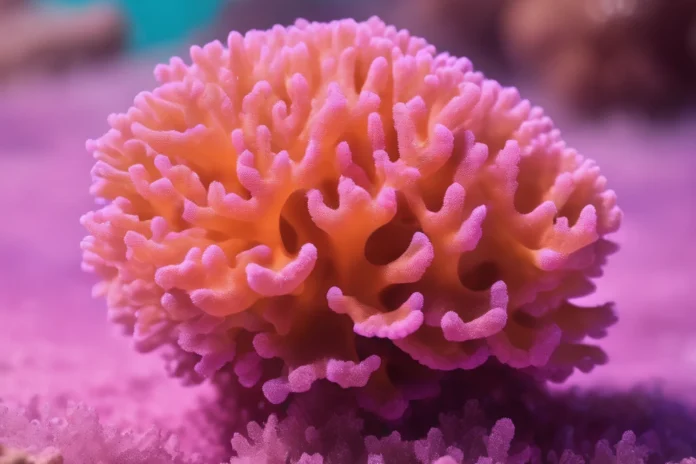Coral reefs are one of the most biodiverse ecosystems on Earth, providing food and shelter for countless marine lives and protecting coastlines from erosion. So, Coral cryopreservation is necessary for a sustainable environment. But, these vital ecosystems face climate change, pollution, and overfishing threats. In recent years, coral reefs have experienced mass bleaching events, causing widespread die-offs and raising concerns about their future. Therefore, Scientists have taken the initiative on a transformative journey, utilizing the efficiency of Coral cryopreservation to restore and grow corals, which offers hope for the survival of endangered marine and ocean ecosystems.
Cryopreservation: Freezing Time for Corals
Cryopreservation is a process of freezing cells or tissues at very low temperatures to preserve them for long periods. In the case of corals, scientists are developing new techniques to freeze coral fragments, essentially putting them in a state of suspended animation. This allows them to be stored for years or even decades, providing a valuable insurance policy against coral loss.
One of the significant breakthroughs in coral cryopreservation came in 2019 when scientists at the Australian Institute of Marine Science successfully froze and revived fragments of adult coral for the first time.
Reason Behind the Experiment
It has been two decades since the researchers have been freezing corals at temperatures as low as -196 Celsius, only for refreshing reefs by struggling with bleaching and acidification. After decades of working, a quantum leap was finally achieved as a team at National Sun Yat-sen University in Taiwan successfully grew adult corals from cryopreserved larvae. This climax has vast implications for the regrowth of coral populations worldwide.
To explore more scientific experiments visit: https://blessedbulletin.com/category/science/
The Challenges Faced in Coral Cryopreservation
While these advancements offer some hope for the future of coral reefs, significant challenges still need to be addressed. Using these techniques, ensuring the long-term feasibility of cryopreserved samples, and addressing the root causes of coral decline, such as climate change, are just some of the challenges that need to be overcome.
Coral Cryopreservation presents an intimidating challenge because of the entangled nature of freezing and defrosting processes, which damages delicate cellular structures. By decreasing the temperature, the coral’s cells turn into dehydrated and inflamed forms due to the transformation of water into ice within the coral cells. The continuous reheating requires careful vision, as slow warming can result in refreezing and cellular damage. Cryobiologists have developed new and recent techniques through diligent trial and error to overcome these challenges.
Significant Elements in Successful Coral Defrosting
In the search for successful coral cryopreservation, researchers have put forward a technique of antifreeze as a protective measure. Though antifreeze can be dangerous, its integration into the larvae’s cells leads to water expulsion, alleviating damage during the liquid nitrogen submersion. Using a high-powered laser for fast defrosting proved instrumental in lessening harm. A significant breakthrough came with incorporating gold nanoparticles in the antifreeze, ensuring even warming during reheating. This careful approach has led to a remarkable eleven percent survival rate of larvae, outstanding expectations, and marked a significant step forward.
Post-Defrosting Care for Coral Cryopreservation Larvae
While the success of growing cryopreserved corals into adults is innovative, the fragility of the larvae post-defrosting poses new queries. These sensitive specimens demand meticulous care comparable to intensive care for post-surgery patients. Leandro Godoy, a coral cryobiologist, confessed the significance of this achievement, emphasizing the requirements for continued improvements to make mass-scale reef restoration a practical fact.
Transforming Success into Ascendable Reef Restoration
As the defrost corals continue to thrive in controlled environments, scientists look forward to refining the process for vast applications. The ultimate goal is to increase survival rates and address potential side effects, ensuring the applicability of mass-scale reef restoration startups. The success of this recent approach to coral cryopreservation makes space for new possibilities for protecting the future of coral reefs and the ecosystems they support.



